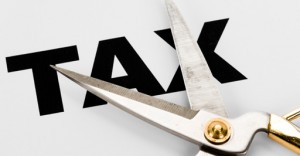Home » Commentary » Opinion » The moral and economic case for tax cuts
· The Spectator Australia
 It is difficult to find anyone in politics willing to make a case for income tax cuts for anyone considered a ‘high’ income earner. That would be understandable if no such case existed, but there is a strong case on both economic and moral grounds.
It is difficult to find anyone in politics willing to make a case for income tax cuts for anyone considered a ‘high’ income earner. That would be understandable if no such case existed, but there is a strong case on both economic and moral grounds.
The reality is that in a climate of debate dominated by warped views of inequality and fairness, even those who recognise the case for higher income tax cuts — with a few notable exceptions — run a mile from it and would rather join in the slanging match about distribution.
It is difficult to find anyone in politics willing to make a case for income tax cuts for anyone considered a ‘high’ income earner. That would be understandable if no such case existed, but there is a strong case on both economic and moral grounds.
The reality is that in a climate of debate dominated by warped views of inequality and fairness, even those who recognise the case for higher income tax cuts — with a few notable exceptions — run a mile from it and would rather join in the slanging match about distribution.
The latter stages of the tax cuts — if they ever occur — will deliver benefits at high incomes as well as low and middle incomes. However, the package as a whole does not benefit high earners disproportionately. Whether this group is defined as the top bracket or the top 20 per cent of taxpayers, their gains will be no greater than the (very high) share of total income tax revenue they currently account for.
In fact, the share of income tax paid by the top bracket will go up under the government’s plan, as will the proportion of taxpayers in that bracket. It is a matter of arithmetic that as long as the top marginal rate stays at 47 per cent (as the government proposes) the dollar benefit flowing on to top bracket taxpayers from cuts further down the scale will be capped and decline in percentage terms as income rises.
More to the point, why does the debate have to be fixated on distribution and why don’t we hear more about the economic benefits from easing the crushing burden of income tax on those who pay most of it?
Will we ever again see a treasurer get to his feet on budget night, make the case for an income tax cut for high earners and lower the top rate from 47 per cent ? A single rate of 34.5 per cent from $41,000 to $200,000 is good as far as it goes, but not as good as a single rate of 34.5 per cent from $41,000, period.
Robert Carling is a Senior Fellow at The Centre for Independent Studies.
The moral and economic case for tax cuts